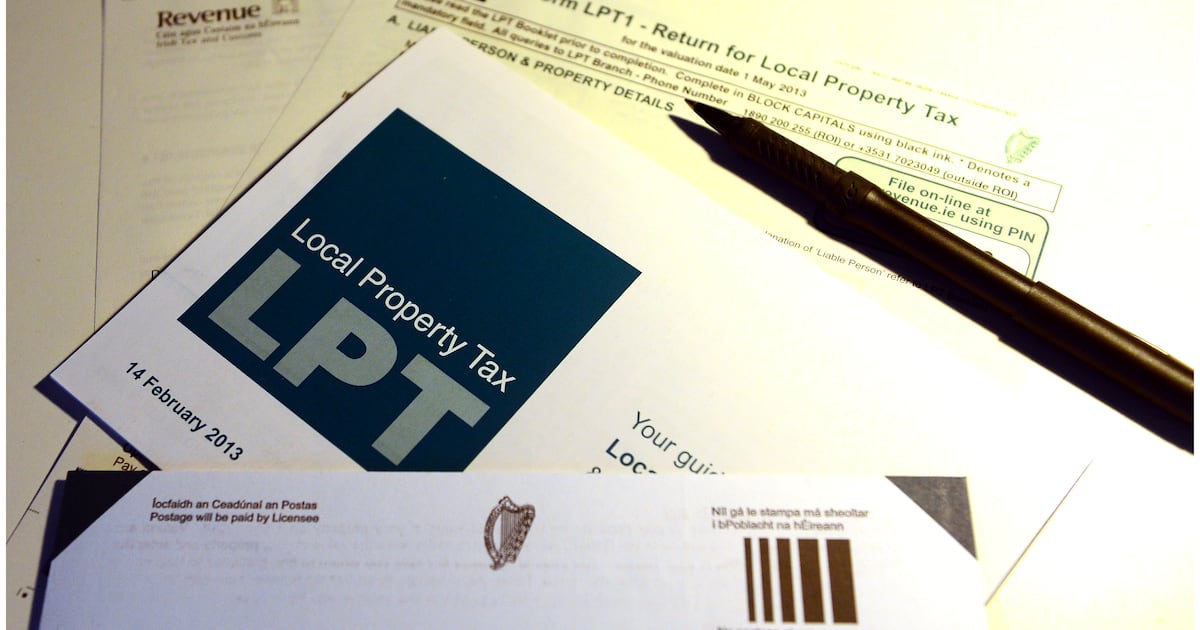Business
Local Authorities to Receive €767 Million in Property Tax Boost

The local property tax (LPT) revenue for Ireland’s 31 local authorities is set to reach €767 million in 2026, reflecting a significant increase of nearly 10 percent from the previous year. This rise is attributed to revaluations of existing properties and the inclusion of newly liable properties, according to figures released by the Department of Housing, Local Government and Heritage.
Approximately two-thirds of the additional €70.4 million will stem from these revaluations. The remaining €23 million will result from decisions made by councils to adjust their base rates. Each local authority has the discretion to modify the amount charged to property owners within a range of plus or minus 15 percent.
Dublin City Council’s Significant Policy Change
In a notable policy shift, Dublin City Council (DCC) members voted in July to discontinue the previous 15 percent reduction in their LPT rate. This change is expected to generate an extra €16.5 million for the council in 2026, raising its allocation from LPT to €109 million. This amount is significantly higher than that of any other local authority, with the next largest allocation being over €50 million less.
Conversely, Carlow County Council will receive the smallest share at €9.9 million. Only three local authorities, including Dún Laoghaire-Rathdown, Fingal, and South Dublin County Council (SDCC), are set to reduce their charges next year. Dún Laoghaire-Rathdown is maintaining its 15 percent cut, which is projected to cost the council approximately €10.4 million in revenue. In contrast, SDCC plans to reduce its cut from 15 percent to 7.5 percent, which will yield an additional €3 million.
Projected Growth and Future Changes
The total of €767 million for local authorities includes central government support amounting to €142.3 million for 21 councils with lower LPT bases. This figure has decreased by around €1.5 million compared to 2025. The total allocation represents a 69 percent increase from the €453 million distributed a decade ago.
When comparing projected totals, the expected amount payable by property owners if all councils applied the maximum charge would be €601.5 million in 2026, compared to €473.5 million in previous years. In 2016, 11 councils applied reductions to the national rate, with five of those councils, including all four in Dublin, implementing the maximum cut of 15 percent. Currently, only three councils are applying cuts, while the majority have opted to increase the tax.
New legislation passed this year will also allow councils to raise their LPT rates up to 25 percent starting in 2027. Should the councils that are currently applying an additional 15 percent choose to take advantage of this increase, it could result in an additional €37.7 million in property tax revenue. This forecast is nearly equivalent to the €42 million expected from revaluations next year, which include €7.7 million from newly liable properties.
The revaluations are scheduled to take place on November 1, 2026, with adjustments made to valuation bands. According to the Minister for Finance, homeowners with properties valued up to €525,000 will see annual increases ranging from €5 to €25. Those with higher-valued properties will experience more substantial increases.
Overall, the changes in the local property tax landscape highlight a shift towards increased revenue generation for local authorities, with Dublin City Council’s significant policy modification leading the way.
-

 Top Stories2 months ago
Top Stories2 months agoTributes Surge for 9-Year-Old Leon Briody After Cancer Battle
-

 Entertainment4 months ago
Entertainment4 months agoAimee Osbourne Joins Family for Emotional Tribute to Ozzy
-

 Politics4 months ago
Politics4 months agoDanny Healy-Rae Considers Complaint After Altercation with Garda
-

 Top Stories3 months ago
Top Stories3 months agoIreland Enjoys Summer Heat as Hurricane Erin Approaches Atlantic
-

 World4 months ago
World4 months agoHawaii Commemorates 80 Years Since Hiroshima Bombing with Ceremony
-

 Top Stories2 months ago
Top Stories2 months agoNewcastle West Woman Patricia Foley Found Safe After Urgent Search
-

 Top Stories4 months ago
Top Stories4 months agoFianna Fáil TDs Urgently Consider Maire Geoghegan-Quinn for Presidency
-

 World4 months ago
World4 months agoCouple Convicted of Murdering Two-Year-Old Grandson in Wales
-

 World4 months ago
World4 months agoGaza Aid Distribution Tragedy: 20 Killed Amid Ongoing Violence
-

 World4 months ago
World4 months agoAristocrat Constance Marten and Partner Convicted of Infant Murder
-

 Top Stories4 months ago
Top Stories4 months agoClimbing Errigal: A Must-Do Summer Adventure in Donegal
-

 Top Stories4 months ago
Top Stories4 months agoHike Donegal’s Errigal Mountain NOW for Unforgettable Summer Views









